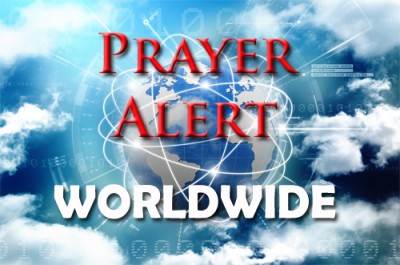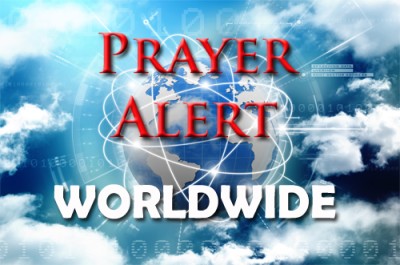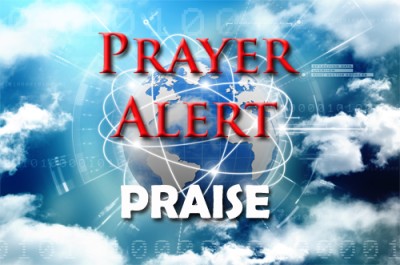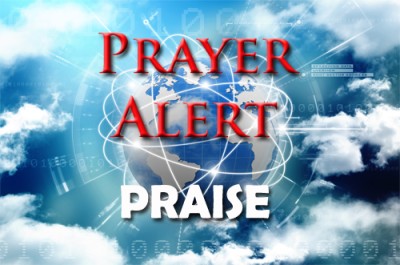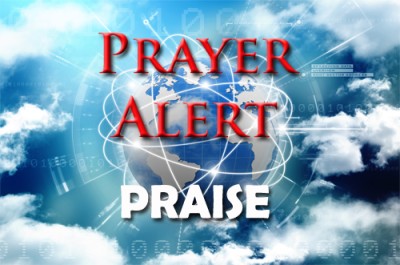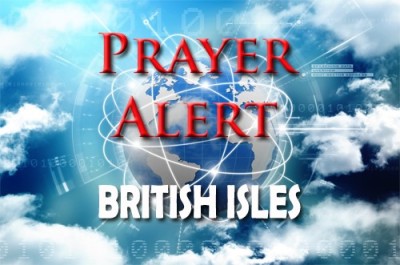Nigeria: a dangerous society
In 2017 Fulani militants seized a Christian mother’s land and burned down her house, forcing her and her family to move closer to the city for safety. Loss of their farmland forced the family of seven into deep poverty, living and sleeping in one room. On 8 August Fulani militants attempted to rape her 16-year-old daughter while they were out walking. A missionary visited the family after the attack and the mother said, ‘They told us to stop, then they beat me as I tried to stop them from raping my daughter.’ She showed the deep gash in her arm she received from the militants, and said God used her to protect her daughter from public disgrace and shame, which is how victims of rape are viewed in their society. ‘I have nothing to say but thank God. Please tell Christians to pray for us. Pray that we will return to our village one day. Life is too expensive in the city.’
Lebanon: discrimination against refugees rises
A refugee agency in Lebanon noted discrimination and violence against Syrian refugees rose sharply recently, with more confrontations at bakeries where refugees often have to wait for bread behind Lebanese citizens. Rawan Haddad, of Tent Schools International, said that the refugees’ situation is sometimes better than most Lebanese. Nations provide basic support and limited facilities for refugees, but Lebanese below the poverty line have no support. There are shortages of bread, flour, and medicine. People don’t make enough to buy what they need, and the government won’t help. With these concerns in mind, Lebanese officials have now announced they plan to repatriate refugees back to Syria, but the problem is that European countries will not agree to that course of action.
Kenya: justice for victims of police brutality
IJM reports, ‘Last week we celebrated justice for IJM lawyer WK, his client and their driver. Three police officers and one civilian were convicted of their murder’. Prior to 2016, few police officers had ever been convicted for murder - despite many instances of police abusing power. But in the past five years, 45 officers have been convicted on murder or manslaughter charges. This gives hope to victims and families of police abuse that justice is possible. ‘Also, praise God for the acquittal of an innocent IJM client in Kenya. He was framed for a crime he didn't commit. During the trial, the prosecution failed to produce any witnesses. He is now free, but please pray for him to be protected from further false accusations.’
Sweden: 300 church plants
Since 2000 there have been 300 churches planted across Sweden by other nations. The Nigerian Redeemed Christian Church of God has 40 Swedish church plants. Their vision is to plant worshipping communities within five minutes' distance from each other. Also from Nigeria there are church plants from Deeper Life Bible, Mountain of Fire and Miracles Ministries. There are plants from Ghanaian Church of Pentecost where the worship language is English, Ghanaian Swahili and Swedish. Chile’s International Mission Church gathers 1,500 people for Sunday services in Stockholm. For Sweden, this is a very big church. There are also congregations with Ethiopian, Eritrean, Iranian, or Afghan connections that are generally closer to the established Swedish denominations.
Holy Spirit moves in Brazil
Two years ago, World Missionary Press (WMP) sent 6.4 million Scripture booklets to ministry partners through a project called ‘Blessings for Brazil’. WMP freight coordinator Helen Williams says she is flooded with reports of the Holy Spirit changing hearts. ‘The feedback is overwhelming as our distributors describe new opportunities; one ministry is sending 500 boxes a time to distribution points for pastors. There are places being reached that have never been reached because of the lack of resources. Some use Scripture booklets in the inner city, others take them to remote jungle tribal villages. Optician teams use Scripture booklets for their eye test reading charts. Where literacy is marginal, teachers use the booklets to teach the language - their lesson plan is the Scripture booklet. Eight million more booklets will go out before the end of 2022.
End of Archie Battersbee’s battle for life
When Archie Battersbee’s accident left him unconscious, he was put on life support treatment, but months later he had not regained consciousness and doctors said he was brain-stem dead. They planned to stop treatment. Archie's mother disagreed, wanting a ‘realistic time’ for her child to recover saying, ‘Planned death is euthanasia, which is illegal in this country. It is for God to decide what should happen to Archie, including if, when and how he should die.’ On 22 July we highlighted Archie’s situation and the need for law changes so that the vulnerable and their families are protected in end-of-life matters. His parents began legal proceedings to keep Archie on life support treatment, but finally on 4 August the European Court of Human Rights refused their application to delay any changes to his treatment. Continue to pray for changes to be made around hospitals' power to make life or death decisions for the vulnerable.

